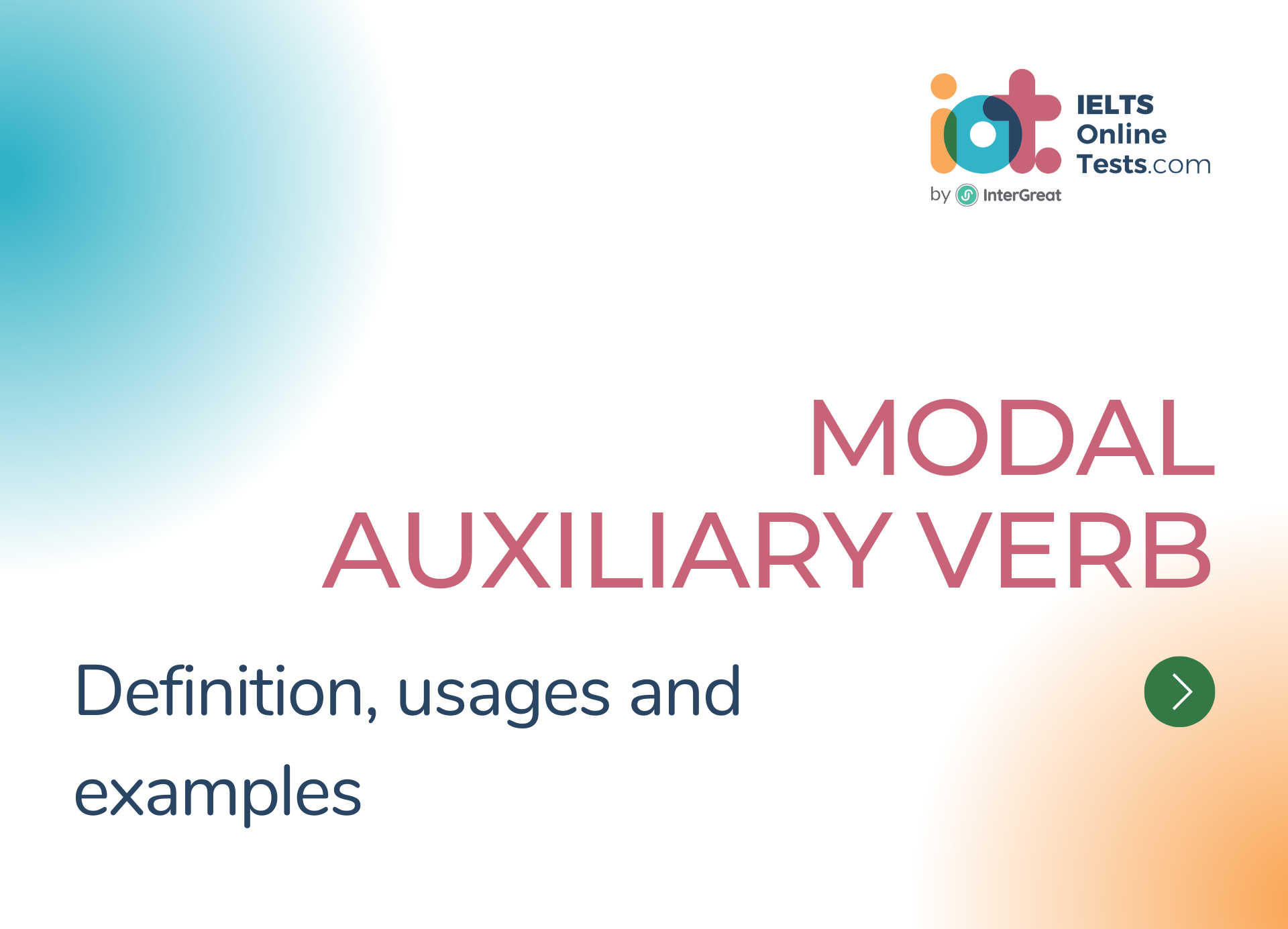
Modal auxiliary verb definition and examples
Modal auxiliary verbs, also known as modal verbs, are a special category of auxiliary verbs that express modality, indicating attitudes such as possibility, necessity, permission, ability, and more. They are used together with the base form of the main verb to convey specific meanings.
Here's a detailed explanation of modal auxiliary verbs with examples:
Common Modal Verbs:
- Can: Indicates ability or possibility.
- Example: "She can swim well."
- Could: Expresses past ability or polite requests.
- Example: "Could you help me with this?"
- May: Signifies permission or possibility.
- Example: "May I use your pen?"
- Might: Implies a slight possibility or uncertainty.
- Example: "He might come to the party."
- Must: Conveys strong necessity or obligation.
- Example: "You must complete the assignment."
- Shall: Used to indicate future actions or suggestions (primarily in formal or legal contexts).
- Example: "Shall we go for a walk?"
- Should: Suggests advice, recommendations, or expectations.
- Example: "You should eat healthy food."
- Will: Indicates future actions or intentions.
- Example: "I will meet you tomorrow."
- Would: Expresses polite requests, preferences, or hypothetical situations.
- Example: "Would you like some tea?"
- Can: Indicates ability or possibility.
Examples of Modal Auxiliary Verbs in Sentences:
- "She can speak multiple languages."
- "We could visit the museum if we have time."
- "May I borrow your pen?"
- "He might arrive late due to traffic."
- "You must follow the rules of the game."
- "Shall we begin the meeting?"
- "You should take care of your health."
- "I will call you later."
- "Would you mind closing the window?"
Modal auxiliary verbs play a crucial role in expressing various attitudes, possibilities, permissions, obligations, and more. They add nuance to our language and allow us to convey specific meanings in different situations. Understanding modal verbs helps in communicating effectively and appropriately in English.




